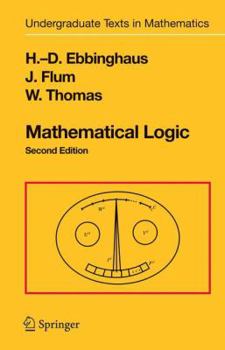Mathematical Logic
What is a mathematical proof? How can proofs be justified? Are there limitations to provability? To what extent can machines carry out mathe- matical proofs? Only in this century has there been success in obtaining substantial and satisfactory answers. The present book contains a systematic discussion of these results. The investigations are centered around first-order logic. Our first goal is Godel's completeness theorem, which shows that the con- sequence relation coincides with formal provability: By means of a calcu- lus consisting of simple formal inference rules, one can obtain all conse- quences of a given axiom system (and in particular, imitate all mathemat- ical proofs). A short digression into model theory will help us to analyze the expres- sive power of the first-order language, and it will turn out that there are certain deficiencies. For example, the first-order language does not allow the formulation of an adequate axiom system for arithmetic or analysis. On the other hand, this difficulty can be overcome--even in the framework of first-order logic-by developing mathematics in set-theoretic terms. We explain the prerequisites from set theory necessary for this purpose and then treat the subtle relation between logic and set theory in a thorough manner.
Format:Paperback
Language:English
ISBN:1475723571
ISBN13:9781475723571
Release Date:January 2012
Publisher:Springer
Length:291 Pages
Weight:0.94 lbs.
Dimensions:0.6" x 6.1" x 9.2"
Customer Reviews
0 rating





